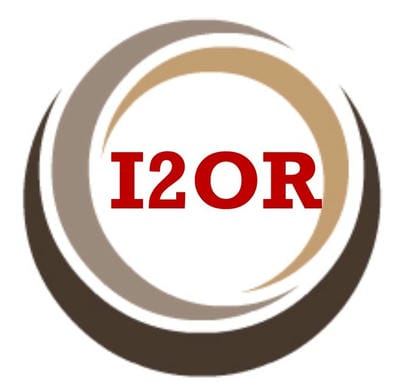Recurrent abdominal pain in school children in a rural tertiary hospital
Abstract
Background: Recurrent abdominal pain is one of the most common presenting complaints among school going children, with a prevalence of 10-12%. Most of the children with recurrent abdominal pain are not evaluated further, either due to the mild abdominal pain or transient nature of the symptoms. Recurrent abdominal pain requires complete evaluation to look for organic causes. However, in many cases, where no specific organic cause can be identified, a psychosomatic component has been shown to play a role. The aim of the study is to evaluate children with recurrent abdominal pain in the age group 2-12 years for a cause at a tertiary rural hospital, in an attempt to better understand this syndrome.
Methods: Retrospectively collected data from 210 consecutive patients aged between 2-12 years from January 2015 to January 2017, who presented to Department of Surgery and Emergency department in MOSC Medical College with recurrent abdominal pain were studied. Data collection included demographic details, symptomatology and clinical details, and response to treatment. Each patient was thoroughly evaluated to identify an organic cause for the pain. All the patients were evaluated by the paediatrician for any underlying medical cause.
Results: During the two-year period, 210 patients were evaluated and investigated, and an organic cause was detected in 44 patients, while 166 patients were diagnosed to have RAP. The 44 patients with an organic cause were treated for the primary condition and were asymptomatic on follow up. Investigations revealed that 20 patients suffered from acute appendicitis, 20 patients were diagnosed with habitual constipation Patients without an organic cause were reassured, counselled and treated symptomatically. All the patients were on follow up for the entire period of the study. Of the 166 patients diagnosed with RAP, 110 patients responded to symptomatic measures, while 21 patients were referred to child psychiatry and are on long term follow up.
Conclusion: Recurrent abdominal pain is a significant cause of functional impairment in the life of a child. Thorough evaluation of the patient to rule out organic causes is vital. Majority of the children diagnosed with recurrent abdominal pain respond to counselling. Acknowledging the existence of the symptoms instead of dismissing it, and empathising with the child is often all that is required in the management of these patients
Downloads
References
2. Boey CC, Goh KL. Recurrent abdominal pain and consulting behaviour among children in a rural community in Malaysia. Dig Liver Dis.2001; 33(2):140144. doi: https ://doi. org/10. 1016/ S1590-8658 (01) 80069-4.
3. Plunkett A, Beattie RM. Recurrent abdominal pain in childhood. J R Soc Med. 2005;98(3):101-106. doi: 10. 1258/jrsm.98.3.101
4. Nagal L, Dabi J, Mourya HK. A clinicoepidemiological study of functional pain abdomen in children. Int J Med Biomed Stu. 2019;3(9):1-3. doi: 10. 32553/ijmbs.v3i9.512
5. Buch NA, Ahmad SM, Ahmed SZ, Ali SW, Charoo BA, Hassan MU. Recurrent abdominal pain in children. Indian Pediatr. 2002;39(9):830-834.
6. Devanarayana NM, de Silva DG, de Silva HJ. Aetiology of recurrent abdominal pain in a cohort of Sri Lankan children. J Paediatr Child Health. 2008;44(4): 195-200. doi: 10.1111/j.1440-1754.2008.01295.x. Huang RC, Palmer LJ, Forbes DA. Prevalence and pattern of childhood abdominal pain in an Australian general practice. J Paediat Child Health. 2000;36(4): 349-353. doi: https://doi.org/10.1046/j.1440-1754.2000. 00513.x.
8. Pearl RH, Irish MS, Caty MG, Glick PL. The approach to common abdominal diagnoses in infants and children: part II. Pediatr Clinic. 1998;45(6): 12871326.doi: https:/ /doi.org/10.1016/ S0031-3955(05) 700 92-4
9. Balani B, Patwari AK, Bajaj P, Diwan N, Anand VK. Recurrent abdominal pain - a reappraisal. Indian Pediatr. 2000;37(8):876-881.
10. Størdal K, Nygaard EA, Bentsen B. Organic abnormalities in recurrent abdominal pain in children. Acta Paediatr. 2001; 90(6): 638-642. doi: https://doi. org/10.1111/j.1651-2227.2001.tb02426.x.
11. Di Lorenzo C, Youssef NN, Sigurdsson L, Scharff L, Griffiths J, Wald A. Visceral hyperalgesia in children with functional abdominal pain. J Pediatr. 2001;139 (6): 838-843. doi: https://doi.org/10.1067/mpd.2001.118883
12. Symon DN, Russell G. Double blind placebocontrolled trial of pizotifen syrup in the treatment of abdominal migraine. Arch Dis Child. 1995;72(1):48-50. doi: 10.1136/adc.72.1.48
13. Hotopf M, Carr S, Mayou R, Wadsworth M, Wessely S. Why do children have chronic abdominal pain, and what happens to them when they grow up? Population based cohort study. BMJ. 1998;316(7139): 1196-200. doi: 10.1136/bmj.316.7139.1196.
14. Janicke DM, Finnev JW. Empirically supported treatments in pediatric psychology: recurrent abdominal pain. J Pediatr Psychol. 1999; 24(2):115-127. doi: 10. 1093 / jpepsy/24.2.115.



 OAI - Open Archives Initiative
OAI - Open Archives Initiative


















 Therapoid
Therapoid

